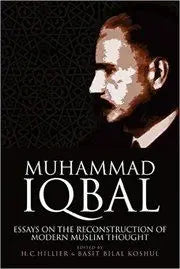About The Book
There are few moments in human history where the forces of religion, culture and politics converge to produce some of the most significant philosophical ideas in the world. India in the early twentieth century saw one of these moments with the rise of activist-thinkers like Nehru, Jinnah and Gandhi, individuals who liberated not only human lives but their minds as well. One of most influential members of that group was the poet-philosopher Muhammad Iqbal. Commonly known as the 'spiritual father of Pakistan', Iqbal's philosophical and political ideas shaped not just the face of Indian Muslim nationalism but also the direction of modernist reformist Islam around the world.
New developments in research on Iqbal's thought are collected here, coming from a range of prominent and emerging voices from political science, philosophy and religious studies. They offer new and novel examinations of the ideas that lie at the heart of Iqbal's own thought: religion, science, metaphysics, nationalism and religious identity. Readers will (re)discover many new connections between the 'Sage of the Ummah' and the greatest thinkers and ideas of European and Islamic philosophies.
- Responds to the renewed interest in Iqbal by developing new interpretations and understandings
- Examines ideas central to Iqbal's thought such as the connection between religious belief and modern knowledge, and the political dimension of Muslim identity
- Explores the links between Iqbal and other philosophers who were his contemporaries including Bergson, Peirce, and Whitehead


